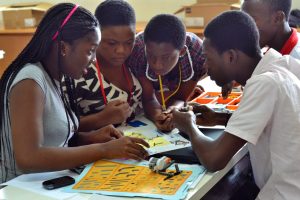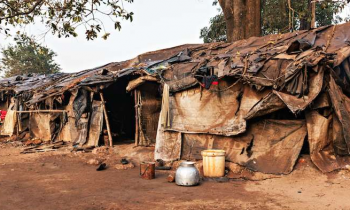Dowload the English Report
Foreword
In adopting the 2030 Agenda for Sustainable Development, world leaders resolved to free humanity from poverty, secure a healthy planet for future generations, and build peaceful, inclusive societies as a foundation for ensuring lives of dignity for all.
This collective journey has at its heart a promise to leave no one behind. The 2030 Agenda is deliberately ambitious and transformational, with a set of 17 integrated and indivisible Sustainable Development Goals and targets to guide us. Crucially, it is a universal agenda, applying to all countries; even the richest have yet to fully ensure women’s rights, conquer inequality or safeguard the environment.
Implementation has begun, but the clock is ticking. This report shows that the rate of progress in many areas is far slower than needed to meet the targets by 2030.
Focused actions are needed to lift the 767 million people who still live on less than 1.90 US dollars a day, and to ensure food security for the 793 million people who routinely confront hunger. We need to double the rate at which we are reducing maternal deaths. We need more determined progress towards sustainable energy, and greater investments in sustainable infrastructure. And we need to bring quality education within reach of all; if all children in low-income countries completed upper secondary school by 2030, per capita income would increase by 75 per cent by 2050 and we could advance the fight to eliminate poverty by a full decade.
Gender inequality is still deeply entrenched, as manifested in the slow progress in women’s representation in political life, in decision-making within their own households, and in the violence, most often with impunity, that women and girls face in all societies. Young people continue to face alarmingly high rates of unemployment, and their voices are yet to be sufficiently included in the deliberations affecting their lives and futures.
More than 2 billion people are living in countries with excess water stress. Nine out of 10 city dwellers are living in cities where air pollution is a health hazard. Planetary warming continues unabated, setting a new record of about 1.1 degrees Celsius above the pre-industrial period and contributing to an increased frequency of extreme weather events.
Sustainable development also depends fundamentally on upholding human rights and ensuring peace and security. Leaving no one behind also means reducing inequalities within and among countries, reaching those most at risk, and strengthening our resolve to prevent conflict and sustain peace.
This report provides a snapshot of our efforts to date. It stresses that high-level political leadership and new partnerships will be essential for sustaining momentum. It also underscores the need for reliable, timely, accessible and disaggregated data to measure progress, inform decision-making and ensure that everyone is counted.
The 2030 Agenda for Sustainable Development aims to improve the lives and future prospects of everyone, everywhere. Along with the “Sustaining Peace” resolutions adopted by the General Assembly and Security Council, the world now has, in its hands, roadmaps for reducing vulnerability, increasing resilience and averting armed conflict. Indeed, sustainable and inclusive development is both a goal in its own right and the world’s best form of prevention.
Our challenge now is to mobilize action that will bring these agendas meaningfully and tangibly to life. I call on Governments and stakeholders to recognize the gaps that have been identified in this report—in implementation, financing and political will—and to now join hands to fulfil this vision and keep this promise. For my part, I will do my utmost to make the United Nations itself more effective and efficient so that it can deliver coherent support on the ground, on one agenda. Together, we can make the full, transformative ambition of the 2030 Agenda a reality for all.


